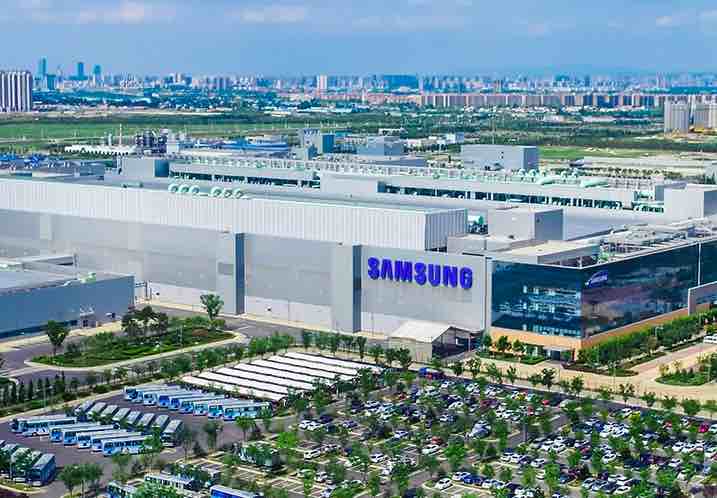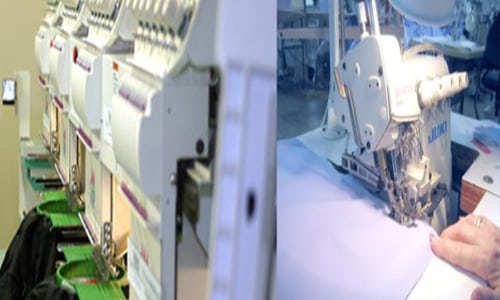
Risks to the Global Supply Chain
Wuhan—the city at the epicenter of the coronavirus outbreak—is at the core of China’s successes as a leading country in the global electronics industry. It has long been acknowledged that many chips for electronic products, including smartphones, are fabricated in Taiwan and Chinese cities like Wuhan, and travel restrictions aiming to contain the virus could cause supply-chain problems for major smartphone manufacturers like Apple. This statement is obvious, especially when we consider that 230 of the Fortune 500 companies have investments in the Wuhan area: The city is a hub for automobiles, optics, electronics, and more.
Wuhan, and China on the whole, is a major hub for the memory market, too. Several Chinese memory suppliers, including Wuhan Xinxin Semiconductor Manufacturing Corp, have operations here, and international electronics companies like Intel, Nvidia, and Broadcom all stand to be affected. The day after China banned travel in and out of Wuhan, these companies saw their stocks sink by as much as five percent.
Shareholders are concerned that Western semiconductor companies that are linked to Wuhan’s manufacturing output in any way, even if only transiently, and China as a whole, will be negatively affected and financially harmed by mass quarantining. After all, any significant closure of factories and restrictions on shipping, travel, and business, in general, could harm supply chains globally.
This is understandable given that major tech companies like Intel are heavily reliant on China. In 2018, the region (China, including Hong Kong and Taiwan) contributed $29.47 billion (over 20%) to Intel’s net revenues, a number that has been increasing year-on-year. There is some good news, however. DRAM and NAND flash markets are unlikely to be affected due to material stockpiling and high levels of automation at fabs operated by Samsung and SK Hynix. This is according to a report by supply-chain analytics provider, TrendForce.
Delays as Long as Five Weeks Anticipated
The IPC, a global electronics manufacturing trade association, recently reported that the coronavirus could result in up to five-week delays in product shipment, adding that delays from China and other countries are already hitting manufacturers hardest. Their survey revealed that 65% of its member manufacturers reported that their suppliers expect a three-week delay on average, however, electronics manufacturers expect delays to be longer. “The delays will likely have ripple effects for the rest of the year,” said John Mitchell, IPC’s president and CEO. “The longer China is affected by the epidemic, and the more it spreads to other parts of the world, the supply chain will experience more and varied strains and disruptions.”
Mitchell went on to add that despite 84% of electronics manufacturers and suppliers being worried about the pandemic’s impact on business operations, most will not switch suppliers because, “In most cases, it’s not easy for manufacturers to switch suppliers, if that’s what turns out to be necessary. Securing alternate sources requires an investment of significant time and money that must be weighed against the value gained,” Mitchell said.

The Impact on Engineers
However, it is not only companies that stand to be affected by coronavirus-related supply-chain shortages, but engineers too. If electronics manufacturers are unable to source components from production factories and fabs located in China or elsewhere, there will almost certainly be delays in the design and prototyping process. This is because engineers simply will be unable to collaborate with these production factories and fabs, causing significant delays to production schedules as component orders go delayed or outright fulfilled.
It is not unfulfilled component orders or delays at fabs that could cause problems for engineers, either. Corporate-mandated travel bans and government efforts to reduce the spread of the virus could prevent employees from traveling to and from China to help resolve production issues, attend meetings, and collaborate with production partners. This also delays the design process as it is one of the most critical stages involved with developing a large number of electronics. For the moment, however, it is small-and-medium-sized businesses that could bear the brunt of all this; they are faced with the dilemma of being unable to obtain components due to lower production capacity. If this persists over an extended period of time, they may face significant financial problems.








